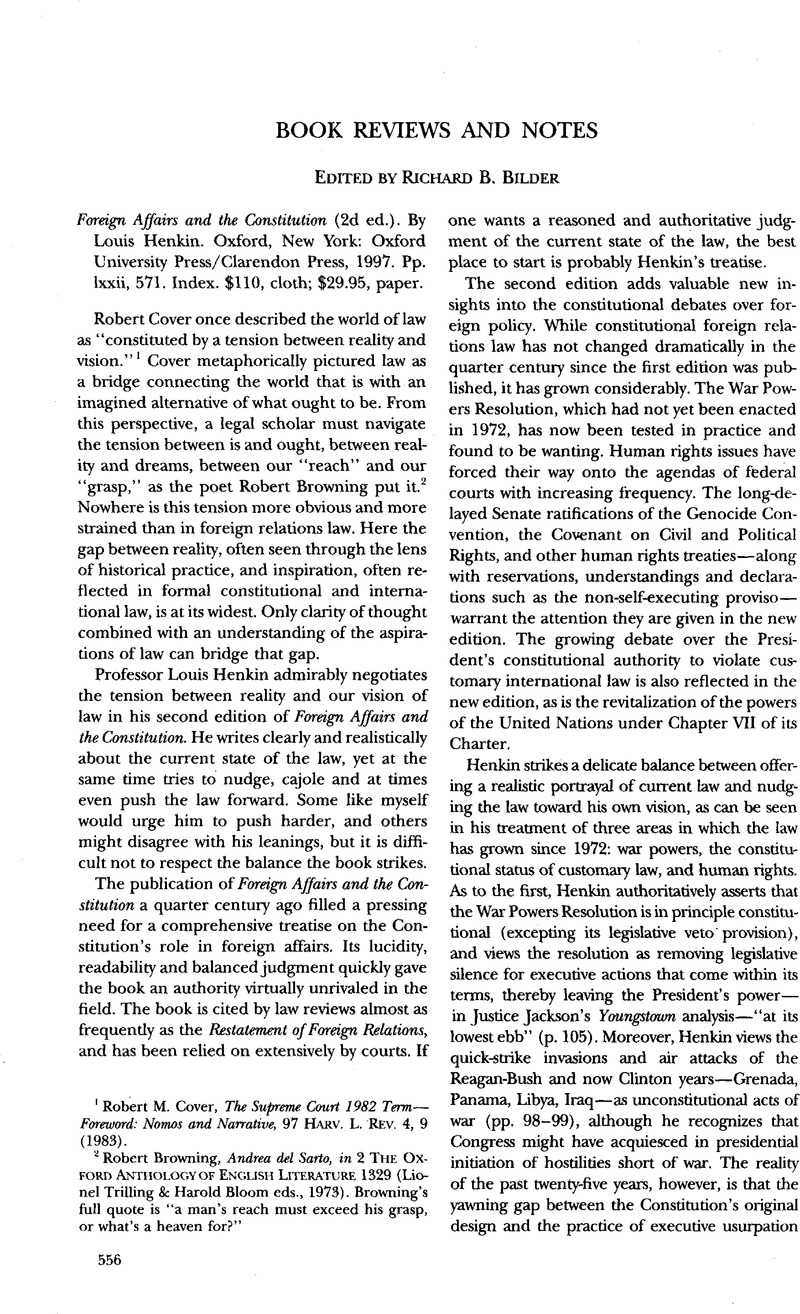No CrossRef data available.
Published online by Cambridge University Press: 27 February 2017

1 Cover, Robert M., The Supreme Court 1982 Term— Foreword: Nomos and Narrative, 97 Harv. L. Rev. 4, 9 (1983)CrossRefGoogle Scholar.
2 Robert, Browning, Andrea del Sarto , in 2 The Oxford Anthology of English Literature 1329 (Lionel, Trilling & Harold, Bloom eds., 1973)Google Scholar. Browning’s full quote is “a man’s reach must exceed his grasp, or what’s a heaven for?”
3 See Agora: May the President Violate Customary International Law?, 80 AJIL 913-27 (1986), 81 AJIL 371-91 (1987).
4 Garcia-Mir v. Meese, 788 F.2d 1446, 1455 (11th Cir. 1986).
5 See Jules, Lobel, The Limits of Constitutional Power: Conflicts between Foreign Policy and International Law, 71 Va. L. Rev. 1071, 1119–20 (1985)Google Scholar; Glennon, Michael J., Raising the Paquete Habana: Is Violation of Customary International Law by the Executive Unconstitutional?, 80 Nw. U. L. Rev. 321 (1985)Google Scholar. Henkin seems to support this position earlier in the book, when he notes that an executive use of force in violation of international law “would seem to be a violation of the President’s constitutional duty to take care that the laws be faithfully executed” (p. 47).
6 I have sometimes pondered what Judge Greene would have done in the Dellums case, Dellums v. Bush, 752 F. Supp. 1141 (D.D.C. 1990), had Congress not voted for war against Iraq and had a serviceman intervened in the case (as was being contemplated) seeking to enjoin his assignment to the gulf. I am pretty sure that Judge Greene still would not have enjoined the President, but he could not have relied on the separation-of-powers ripeness rationale that he utilized in his Dellums opinion.
7 “Indeed, it has been said that democracy is the worst form of Government except all those other forms that have been tried from time to time.” Winston Churchill, Speech Before the House of Commons (Nov. 1, 1947), quoted in The Oxford Dictionary of Quotations 150 (3d ed. 1979)